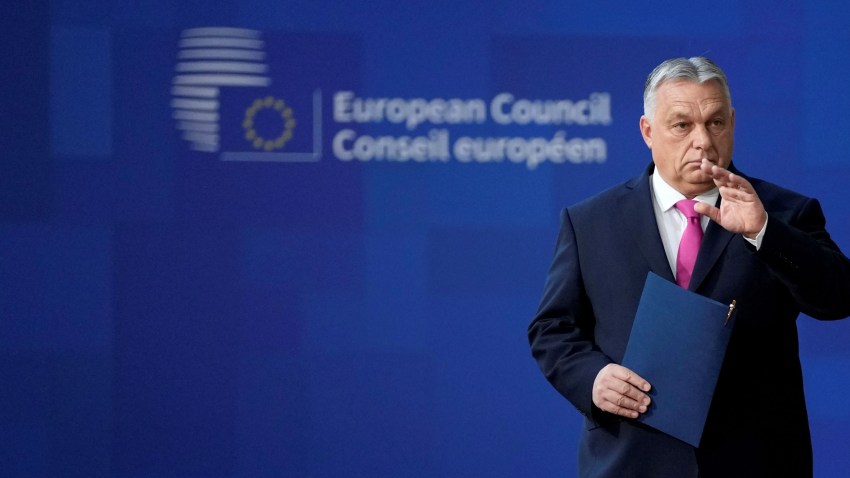For any global power, the stress of managing armed conflict reveals the strengths and weaknesses of its institutions. With the administration of U.S. President Joe Biden struggling to get the Republican votes it needs in the Senate and House of Representatives to fund military aid for Ukraine, the European Union now faces a scenario where it might have to become Kyiv’s sole source of support in its defense against Russia’s invasion. The way this and other huge foreign policy challenges have become deeply intertwined with internal tensions over threats to the rule of law in both the U.S. and EU will shape the fate of both global powers for decades to come.
The parallels between the current challenges facing the U.S. and EU, particularly when it comes to obstruction from far-right populists such as former President Donald Trump and Hungarian Prime Minister Viktor Orban, have reinforced a widespread tendency to equate the problems faced by both systems of government. As a consequence, many commentators have tended to view the current dynamics as a collective systemic crisis across the West that will lead to a common impasse.
Yet when examined more closely, the longstanding problems that rogue leaders of EU member states have caused for decision-making processes in Brussels are not comparable to the more recent structural challenge that Trump’s rise poses to the U.S. constitutional order. In medical terms, the EU’s struggle to manage rogue member states that reject a broad consensus is a chronic though largely manageable affliction, while the Republican Party’s accelerating rejection of democratic norms is an acute condition that could permanently paralyze the U.S. should Trump return to the presidency.

